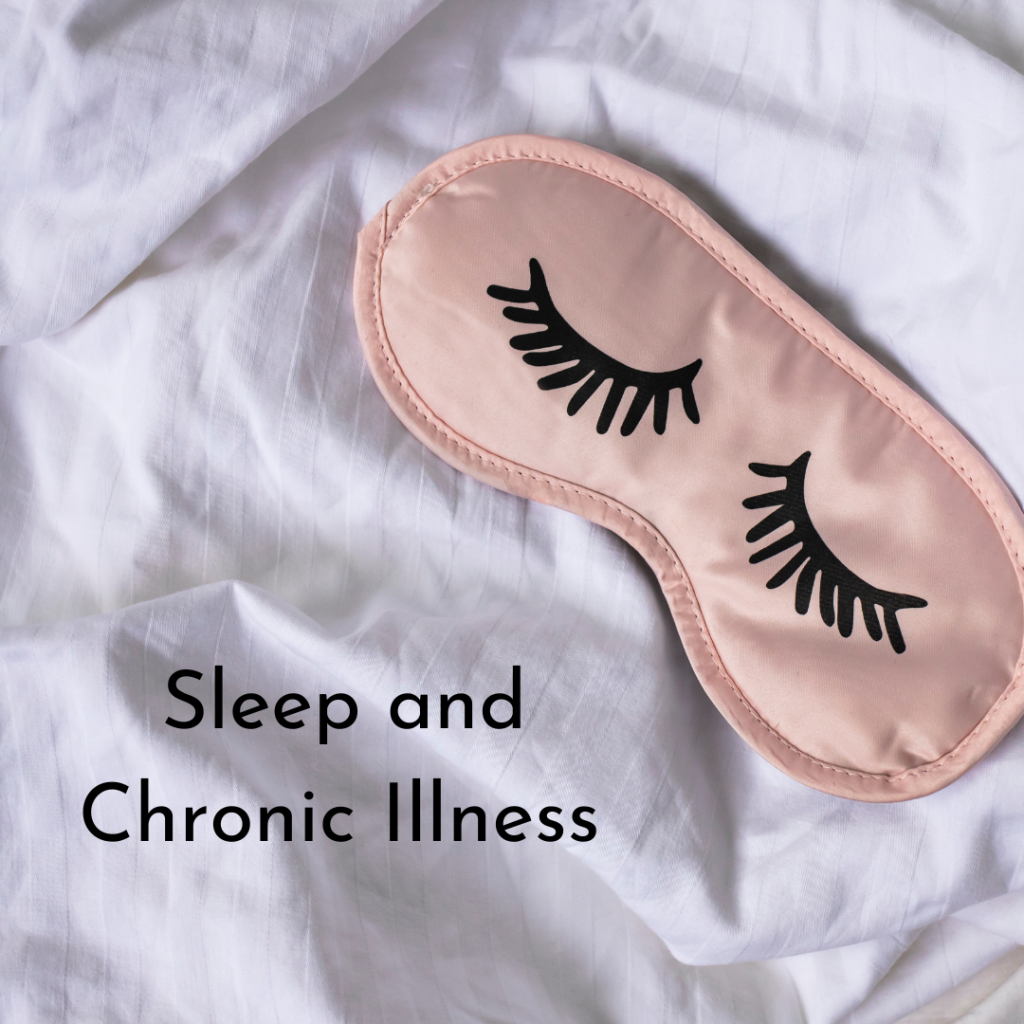Sleep Denies Her
Sleep is a basic need for all humans. The average adult needs 8 hours of undisturbed sleep. Studies show that not getting enough quality sleep leads to cognitive decline. Sleep loss also affects the immune system and the body’s ability to fight off infections. Cancer rates increase significantly with sleep loss. Sleep for someone with chronic illness is difficult.

Chronic Illness and Sleep
For those of us with chronic illness sleep is a constant struggle. Pain keeps us up at night. Finding comfort during sleep is difficult. Our brains process pain differently and we may experience more pain sensitivity at night. Some of the medications we need to take have side effects that impact sleep.
Sleep is something that we can not accumulate to make up for lost hours. So sleeping 10 hours one evening will not make up for only getting 4 hours the night before.
Daily Functioning with Sleep Loss
Chronic sleep deprivation causes issues with memory and learning new information. Coping with stress, and expectations at home or work can become overwhelming. Lack of sleep makes self-regulation difficult. Things that don’t normally affect you may suddenly become frustrating and cause you to lose control.
Chronic illness puts us at greater risk of developing cardiovascular issues as well as cancer. The struggle with sleep makes for more inflammation and additional risks of developing cancer and heart disease.
My Personal Sleep Story
Sleep is a struggle. Having a restful night’s sleep feels impossible. I wake up in the morning feeling like I never even rested even if I manage to get some interrupted hours. Fatigue is not just tired. It is constantly having to push yourself to do any small task.
After several nights of interrupted sleep, I may get a solid night’s sleep. This is only because I am so physically exhausted and my body just gives in. The worst part is I wake up still feeling fatigued. It has been a long time since I can say I have woken up refreshed and ready to face the day.
For myself, my work with youth who struggle with mental health is in and of itself stressful. I love my job, but the lack of sleep combined with stress takes all the energy I have to just to make it through the day. By the time I get home, I am so fatigued that I have nothing left. Just walking the dogs seems like a chore but I do it because I love them, and I know I need to move this tired and achy body.
With little sleep, anxiety increases and even with just a little extra stress, I can completely melt down. At a meeting about struggles with a student, I could not contain my emotions and simply broke down. I was so embarrassed, and the tears just keep flowing. I couldn’t even find the words to describe what was happening. The situation was not the cause but my entire situation. Before my chronic illness, I would have emotional days, but I would have been able to keep it together.
I recently had a sleep study to see if I have any underlying issues that are contributing to my fatigue. I am at a point in my journey where I need to look at my stress levels and how I can reduce the stressors that I have control over. Sleep is so important for mental, spiritual and physical health. Talking to your doctor to try and find the underlying issues will hopefully bring you some peace and shuteye.
Having a supportive partner and family is what is helping me to continue to have hope that I will find the answer to this elusive thing we need to be called a good night’s sleep.